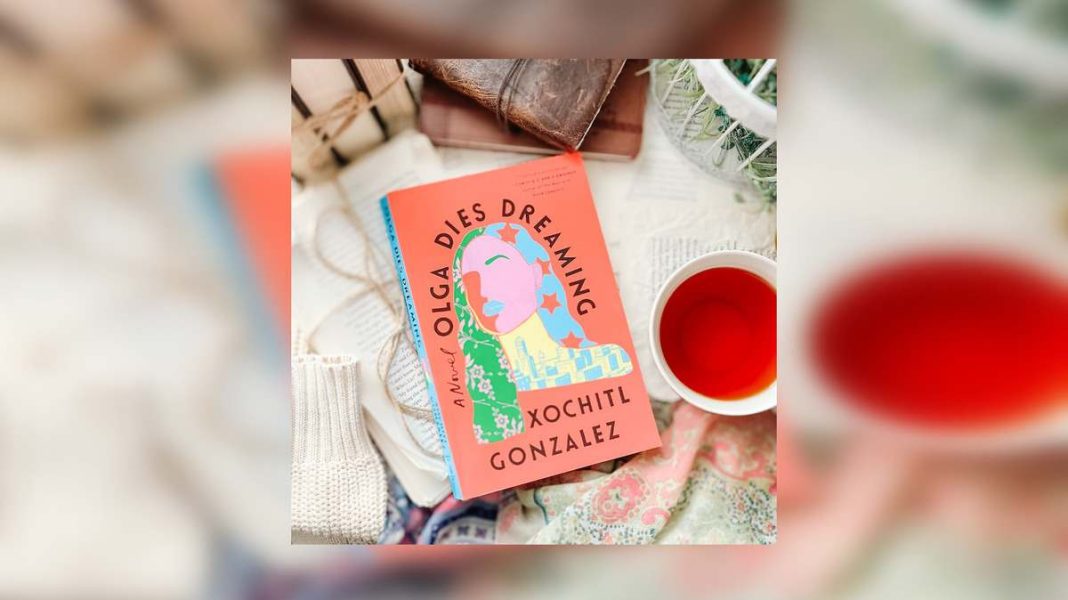Xochitl Gonzalez’s debut novel, “Olga Dies Dreaming,” is making quite a few rounds in the literary circle, and why shouldn’t it? It’s rare for a debut novel to be this powerful and intelligent. The way it tends to focus on important issues that are sensitive and not commonly a part of the discussion is genuinely praiseworthy. Racial tensions have been a subject that several books have focused on for quite a while. It’s what Paul Beatty’s The Sellout was about too. But this book is different in the sense that it deals with an issue that is more sensitive and should be talked about more often but rarely is in the limelight, i.e., the issue of the American dictatorship when it comes to unincorporated or unchartered territories like those of Puerto Rico, Guam, and several others.
Unincorporated territories are those areas that the U.S. holds for various benefits of its own, like conducting military operations. The people are U.S. citizens, but they do not have the right to vote. They have their governor, but since they are not a state, the governor does not enjoy the powers that other governors do. History books do not talk about these unfortunate people who have been oppressed for decades by the most powerful nation in the world, which time and again reinforces its motto to be the land of equality and opportunity for everyone who works hard. It becomes all the more difficult for those who are connected to these territories by birth or by heritage and have had to settle in or grow up in some parts of America. For them, it’s like they are constantly involved in some sort of struggle with their identities, not being able to completely accept or forget their roots.
Growing up in a nation that proclaims diversity at its core but sides with bourgeois whites, the protagonists of this novel, Olga and Prieto, are caught in a struggle that is quite common among diasporas. Born and brought up in Brooklyn, New York, the siblings have little idea about their Puerto Rican culture and heritage. Their parents had taught them everything they knew about the complex history of Boriken (the pre-Columbian name of Puerto Rico), but when it comes to identifying with the struggles that most Puerto Ricans who still live on the island face, they have failed. Essentially because both the siblings have grown up in New York, attending American schools and universities, and while they felt left out amongst the mass of whites who have always belittled or cornered them, they did not have to starve or relocate for basic amenities. They have known their entire lives that their Mami and Papi were and are revolutionaries fighting to liberate the people of Puerto Rico.
For such a great cause, their mother has to leave, and they have to grow up without her support because liberation requires such small sacrifices. They have believed or rather have been made to believe, by their mother, that sacrifices as small as theirs do not matter because, ultimately, it’s the freedom of so many people that’s at stake. Those people of the island, their misery, and sufferings are more important than the normal childhood that Olga and Prieto deserved. With their mother not being around and their father being a junkie, they had been brought up by their Abuelita (grandmother) and Tia Lola (aunt), the former a fiercely independent woman herself who had bought a house in Brooklyn with her own hard-earned money so that no one of her family has to worry about a place to stay (unlike other Puerto Rican diasporas who were subject to quite a lot of harassment by the white apartment owners) and the latter a closeted lesbian who wanted to have kids but couldn’t because of the time and the circumstances back then. So, both diaspora and the absence of parents left a hollow in them, out of which both felt an immense need to create their own identities.
Olga became a wedding planner, and Prieto became a congressman, but somehow the identities that they tried to carve out for themselves were not as independent as one would imagine. Instead, they were based on what would earn them their mother’s affection and what wouldn’t. Olga chose to be a wedding planner and continued to be in that profession even though the work or the money didn’t satisfy her because she knew that it bothered her, Mami, and that gave her some sort of pleasure. Prieto chose to represent his neighborhood not just because he wanted to stand by his people and change things but also because he thought that would please his mother.
‘Olga Dies Dreaming’ Ending Explained – What Happens To Olga In The End?
After Hurricane Maria hits Puerto Rico, Prieto travels there and tries to help the local people as much as he can. The island and its people receive little to no help from the U.S. Suddenly, Prieto gets to know about Los Panuelos Negros, the group led by her mother, of which he was completely unaware, and finally gets the opportunity to meet her, after which everything changes for him. The absence of their mother from their lives for so long had created an image of her in his mind that was far different from who she was in real life.
For so long, Prieto had felt that their mother missed them, and though she had chosen this life of a revolutionary, she loved her children and her family. At least, she wouldn’t want to hurt them. But the way their mother threatened him not to come back ever to the island because they do not need the help of a ‘lombriz’ like him sent chills down his spine. She also shamed him for being like his father: weak and not being able to keep his personal needs aside. He realized that the woman before him was no different from Arthur and Nick Selby, who had always exploited the needs of the people to get what they wanted. For the Selby brothers, the cause was money; for their mother, it was the illusion of “liberation.”
When Olga fails at the mission that her mother had entrusted her with and ends up getting raped by Dick, she locks herself up in her apartment. She finally opens up to Tia Lola, Mabel, and later to Matteo as well. They all decide that it’s better that they not discuss their mother anymore and act like she’s dead. Olga agrees to go for therapy and works on her relationship with Matteo. Meanwhile, Prieto comes out to his daughter and later his ex-wife, the family, the press, and the public, and also mentions that he has tested positive for HIV. Surprisingly, everyone took it well.
The last chapter is set in the year 2025, and we get to know that Prieto is getting married to Marcus, and Olga and Matteo have decided that they do not want children. Mabel has separated from Julio, and Prieto calls up Olga to tell her that revolution has finally struck in Boriken, where their mother’s group has bombed the airport and killed the governor. With the public burning of police cars, the removal of U.S. flags, and the complete overtaking of government buildings, the island was in a state of anarchy. Something that their mother had worked so hard for. When Prieto asked Olga if they would let their mother do this, she contemplated, and even after purchasing a new cell phone and calling the FBI, she decided not to make the final move because she didn’t want their mother to die a martyr with people singing songs about her and remembering her as a hero because she isn’t one.


